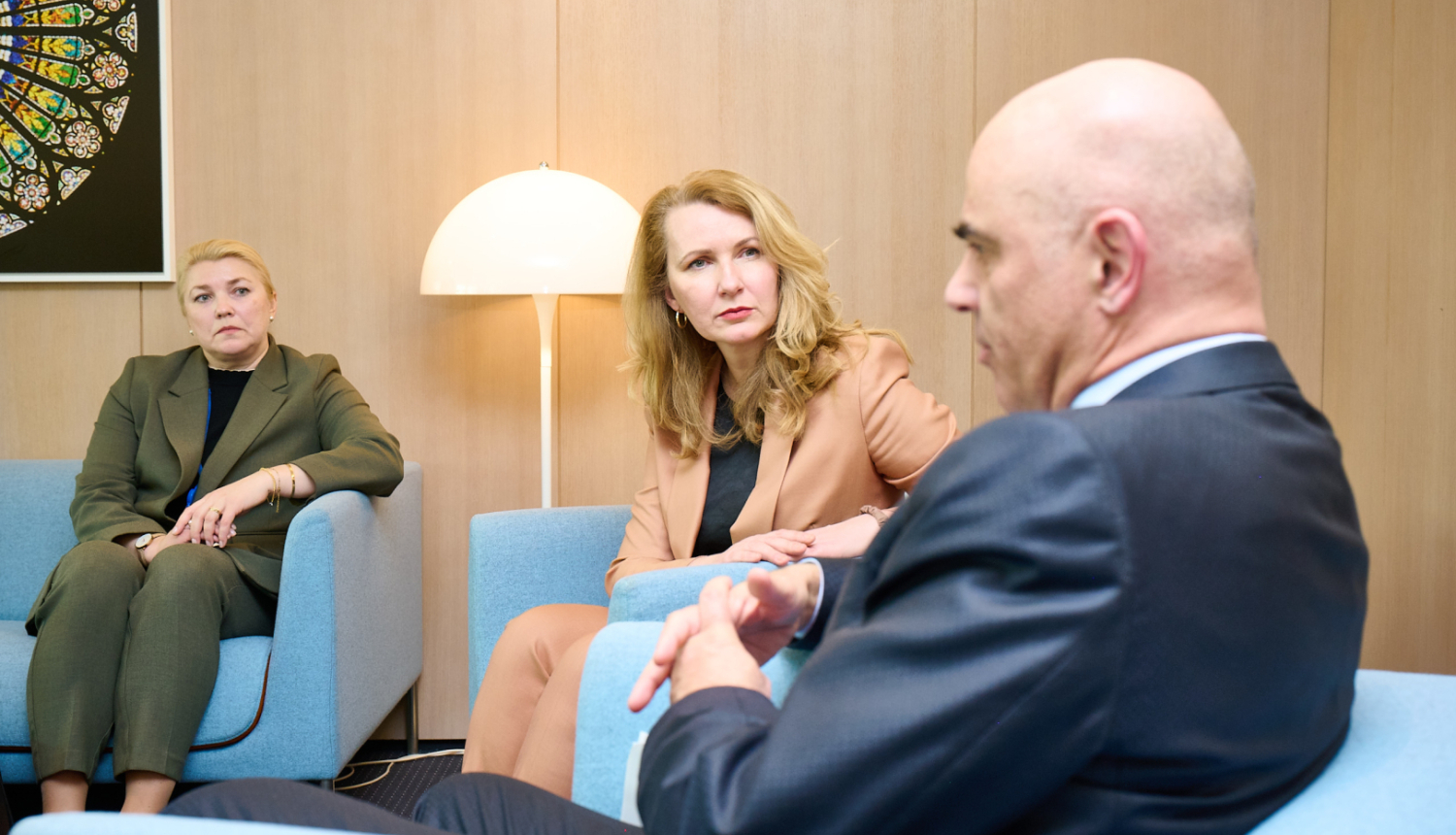On Thursday, 27 March, Minister of Justice Inese Lībiņa-Egnere met with Alain Berset, Secretary General of the Council of Europe, in Strasbourg to discuss the challenges to democracy and the rule of law in Europe and the necessary solutions. The talks focused on the threats to democracy in Georgia and Moldova, the organisation's key role in ensuring Russia's international accountability, and reducing Russia's influence in the Council of Europe.
Supporting Georgia and Moldova in strengthening democracy
During the meeting, Inese Liebina-Egner expressed her strong support for Georgian civil society and independent media, and stressed the importance of necessary reforms on Moldova's path towards the European Union.
The Justice Minister warned of Russia's increasing interference in Moldova's domestic politics: "We are concerned about energy blackmail, disinformation and support for destructive forces. Russia is expected to step up its efforts to change Moldova's European integration course before the 2025 parliamentary elections. Latvia continues to provide both political and practical support to strengthen Moldova's resilience."
The Council of Europe's key role in holding Russia to account
Inese Lübiņa-Egnere highlighted the important role of the Council of Europe in strengthening international accountability, especially with regard to holding Russia accountable for crimes of aggression. The Minister highlighted the need to continue work on the establishment of a special international tribunal to ensure justice and respect for international law.
"At present, several Council of Europe member states are experiencing a democratic decline. We have a duty to stand together in support of these countries and to strengthen the Council of Europe's own capacity to defend democracy, the rule of law and the rule of law. Accountability for the crimes committed by Russia in its war against Ukraine is particularly important - it is a question of the rule of law, and the Council of Europe has an important role to play in this process. Latvia will always support the Council of Europe in its tasks," said Inese Lībiņa-Egnere.
The Minister of Justice also stressed that despite Russia's expulsion from the Council of Europe in 2022, the presence of its citizens in the organisation remains politically and morally unacceptable. The Secretary General of the Council of Europe undertook to seek legal solutions to remedy this situation.
Latvia's active role in the Council of Europe
Secretary General Berlusé expressed strong support for Latvia's position and stressed that the Council of Europe will continue to be an active partner in strengthening democracy, human rights and the rule of law. He commended Latvia for its achievements as the country holding the Presidency of the Council of Europe, highlighting in particular Latvia's contribution to the implementation of the important Register of Losses for Ukraine, which is now actively functioning.
Berset also pointed to Latvia's consistent action within the Council of Europe, defending democratic values and supporting member states facing external threats.
During the meeting, the Minister of Justice also signed on behalf of Latvia the Second Additional Protocol to the Council of Europe Convention on Cybercrime on Enhanced Cooperation and Disclosure of Electronic Evidence. During her visit, the Minister also met with the President of the European Court of Human Rights, Marko Bošnjak, and the Council of Europe Commissioner for Human Rights, Michael O'Flaherty.



